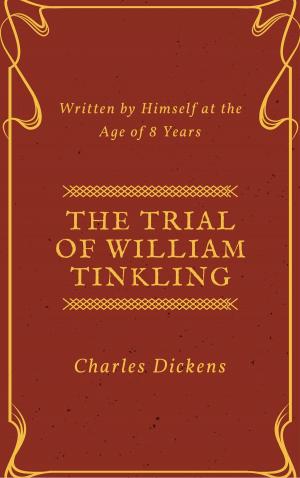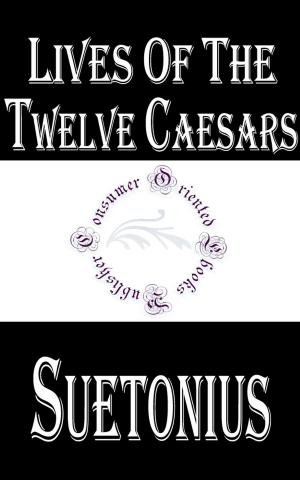St Francis
Nonfiction, Religion & Spirituality, Philosophy, Religious, Biography & Memoir, Historical| Author: | G. K. Chesterton | ISBN: | 1230000245258 |
| Publisher: | Consumer Oriented Ebooks Publisher | Publication: | June 7, 2014 |
| Imprint: | Language: | English |
| Author: | G. K. Chesterton |
| ISBN: | 1230000245258 |
| Publisher: | Consumer Oriented Ebooks Publisher |
| Publication: | June 7, 2014 |
| Imprint: | |
| Language: | English |
A sketch of St. Francis of Assisi in modern English may be written in one of three ways. Between these the writer must make his selection; and the third way, which is adopted here, is in some respects the most difficult of all. At least, it would be the most difficult if the other two were not impossible.
First, he may deal with this great and most amazing man as a figure in secular history and a model of social virtues. He may describe this divine demagogue as being, as he probably was, the world's one quite sincere democrat. He may say (what means very little) that St. Francis was in advance of his age. He may say (what is quite true) that St. Francis anticipated all that is most liberal and sympathetic in the modern mood; the love of nature; the love of animals; the sense of social compassion; the sense of the spiritual dangers of prosperity and even of property. All those things that nobody understood before Wordsworth were familiar to St. Francis. All those things that were first discovered by Tolstoy could have been taken for granted by St Francis. He could be presented, not only as a human but a humanitarian hero; indeed as the first hero of humanism. He has been described as a sort of morning star of the Renaissance. And in comparison with all these things, his ascetical theology can be ignored or dismissed as a contempory accident, which was fortunately not a fatal accident. His religion can be regarded as a superstition, but an inevitable superstition, from which not even genius could wholly free itself; in the consideration of which it would be unjust to condemn St. Francis for his self denial or unduly chide him for his chastity. It is quite true that even from so detached a standpoint his stature would still appear heroic. There would still be a great deal to be said about the man who tried to end the Crusades by talking to the Saracens or who interceded with the Emporer for the birds. The writer might describe in a purely historical spirit the whole of the Franciscan inspiration that was felt in the painting of Giotto, in the poetry of Dante, in the miracle plays that made possible the modern drama, and in so many things that are already appreciated by the modern culture. He may try to do it, as others have done, almost without raising any religious question at all. In short, he may try to tell the story of a saint without God; which is like being told to write the life of Nansen and forbidden to mention the North Pole.
Second, he may go to the opposite extreme, and decide, as it were, to be defiantly devotional. He may make the theological enthusiasm as thoroughly the theme as it was the theme of the first Franciscans. He may treat religion as the real thing that it was to the real Francis of Assisi. He can find an austere joy, so to speak, in parading the paradoxes of asceticism and all the topsy-turveydom of humility. He can stamp the whole history with the Stigmata, record fasts like fights against a dragon; till in the vague modern mind St Francis is as dark a figure as St. Dominic. In short, he can produce what many in our world will regard as a sort of photographic negative; the reversal of all lights and shades; what the foolish will find as impenetrable as darkness and even many of the wise will find almost as invisible as if it were written in silver upon white. Such a study of St. Francis would be unintelligible to anyone who does not share his religion, perhaps only partly intelligible to anyone who does not share his vocation. According to degrees of judgement, it will be regarded as something too bad or too good for the world. The only difficulty about doing the thing in this way is that it cannot be done. It would really require a saint to write about the life of a saint. In the present case the objections to such a course are insuperable.
Third, he may try to do what I have tried to do here; and as I have already suggested, the course has peculiar problems of its own. The writer may put himself in the position of the ordinary modern outsider and enquirer; as indeed the present writer is still largely and was once entirely in that position. He may start from the standpoint of a man who already admires St. Francis, but only for those things which such a man finds admirable. In other words he may assume that the reader is at least as enlightened as Renan or Matthew Arnold; but in the light of that enlightenment he may try to illimunate what Renan and Matthew Arnold left dark. He may try to use what is understood to explain what is not understood. He may try to say to the modern English reader: "Here is an historical character which is admittedly attractive to many of us already, by its gaiety, its romantic imagination, its spiritual courtesy and cameraderie, but which also contains elements (evidently equally sincere and emphatic) which seem to you quite remote and repulsive. But after all, this man was a man and not half a dozen men.
A sketch of St. Francis of Assisi in modern English may be written in one of three ways. Between these the writer must make his selection; and the third way, which is adopted here, is in some respects the most difficult of all. At least, it would be the most difficult if the other two were not impossible.
First, he may deal with this great and most amazing man as a figure in secular history and a model of social virtues. He may describe this divine demagogue as being, as he probably was, the world's one quite sincere democrat. He may say (what means very little) that St. Francis was in advance of his age. He may say (what is quite true) that St. Francis anticipated all that is most liberal and sympathetic in the modern mood; the love of nature; the love of animals; the sense of social compassion; the sense of the spiritual dangers of prosperity and even of property. All those things that nobody understood before Wordsworth were familiar to St. Francis. All those things that were first discovered by Tolstoy could have been taken for granted by St Francis. He could be presented, not only as a human but a humanitarian hero; indeed as the first hero of humanism. He has been described as a sort of morning star of the Renaissance. And in comparison with all these things, his ascetical theology can be ignored or dismissed as a contempory accident, which was fortunately not a fatal accident. His religion can be regarded as a superstition, but an inevitable superstition, from which not even genius could wholly free itself; in the consideration of which it would be unjust to condemn St. Francis for his self denial or unduly chide him for his chastity. It is quite true that even from so detached a standpoint his stature would still appear heroic. There would still be a great deal to be said about the man who tried to end the Crusades by talking to the Saracens or who interceded with the Emporer for the birds. The writer might describe in a purely historical spirit the whole of the Franciscan inspiration that was felt in the painting of Giotto, in the poetry of Dante, in the miracle plays that made possible the modern drama, and in so many things that are already appreciated by the modern culture. He may try to do it, as others have done, almost without raising any religious question at all. In short, he may try to tell the story of a saint without God; which is like being told to write the life of Nansen and forbidden to mention the North Pole.
Second, he may go to the opposite extreme, and decide, as it were, to be defiantly devotional. He may make the theological enthusiasm as thoroughly the theme as it was the theme of the first Franciscans. He may treat religion as the real thing that it was to the real Francis of Assisi. He can find an austere joy, so to speak, in parading the paradoxes of asceticism and all the topsy-turveydom of humility. He can stamp the whole history with the Stigmata, record fasts like fights against a dragon; till in the vague modern mind St Francis is as dark a figure as St. Dominic. In short, he can produce what many in our world will regard as a sort of photographic negative; the reversal of all lights and shades; what the foolish will find as impenetrable as darkness and even many of the wise will find almost as invisible as if it were written in silver upon white. Such a study of St. Francis would be unintelligible to anyone who does not share his religion, perhaps only partly intelligible to anyone who does not share his vocation. According to degrees of judgement, it will be regarded as something too bad or too good for the world. The only difficulty about doing the thing in this way is that it cannot be done. It would really require a saint to write about the life of a saint. In the present case the objections to such a course are insuperable.
Third, he may try to do what I have tried to do here; and as I have already suggested, the course has peculiar problems of its own. The writer may put himself in the position of the ordinary modern outsider and enquirer; as indeed the present writer is still largely and was once entirely in that position. He may start from the standpoint of a man who already admires St. Francis, but only for those things which such a man finds admirable. In other words he may assume that the reader is at least as enlightened as Renan or Matthew Arnold; but in the light of that enlightenment he may try to illimunate what Renan and Matthew Arnold left dark. He may try to use what is understood to explain what is not understood. He may try to say to the modern English reader: "Here is an historical character which is admittedly attractive to many of us already, by its gaiety, its romantic imagination, its spiritual courtesy and cameraderie, but which also contains elements (evidently equally sincere and emphatic) which seem to you quite remote and repulsive. But after all, this man was a man and not half a dozen men.















